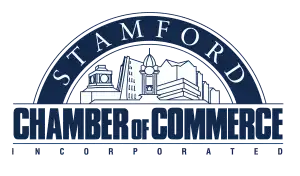New Canaan Theft Lawyer
A New Canaan theft lawyer can analyze your situation and review your options for fighting the charges. Working with a top defense lawyer gives you an ally throughout the process to reduce uncertainty and help you reach a positive outcome in your case.
How Does New Canaan Treat Felony Theft Offenses?
Theft offenses may be treated as felonies or misdemeanors. Often, the difference in the severity of the penalties is tied to the value of the property at issue in the case. However, New Canaan theft attorneys know that sometimes the circumstances cause a theft to be treated as a felony regardless of the property value. Theft of a motor vehicle, for example, is always a felony. Taking of certain property such as a public writing or scientific secrets is also a felony offense under Connecticut General Statutes (C.G.S.) §53a-124.
As a general rule, theft of property worth more than $2,000 is treated as felony theft. Nevertheless, extortion and taking property from the body of another person are treated as felonies even when the property involved is worth far less than $2,000. General felony theft offenses are described in the criminal code as larceny in the first, second, and third degrees.
Other specific theft crimes may also be treated as felonies. For instance, identity theft in the first, second, and third degrees are all felony offenses under C.G.S. §§53a-129a-through 129d.
Can Theft Be Consider a Misdemeanor?
If theft crimes do not involve the potential for violence, physical contact, extortion, or other aggravating factors, they may be treated as misdemeanors if the value of the property taken is $2,000 or less.
Under C.G.S. § 53a-125, larceny in the fourth degree occurs when someone wrongfully takes property worth more than $1,000 but no more than $2,000. This offense is a Class A misdemeanor and is punishable by up to one year in jail and a fine of up to $2,000. Someone convicted may also be required to make restitution to the person whose property was taken. A theft lawyer in New Canaan can work to advocate for restitution as an alternative to criminal fines or imprisonment.
Under C.G.S. § 53a-125a, fifth-degree larceny involves property worth between $500 and $1,000, while sixth-degree larceny under C.G.S. § 53a-125b occurs when the property taken is worth less than $500. Maximum penalties include six or three months in jail and fines of $1,000 or $500, respectively.
Are There Other Types of Theft Crimes?
Larceny is a simple form of theft. A larceny consists of “wrongfully” taking or withholding property belonging to another with the intent to deprive the owner of the property (C.G.S. § 53a-119).
Certain theft crimes involving fraud or abuse of trust are referred to as white-collar crimes. These include embezzlement, credit card fraud, defrauding the public community, and forgery.
State statutes define many specific theft crimes such as theft of utility services, shoplifting, and obtaining property through the fraudulent use of an ATM. When theft is combined with violence or the potential for violence, the offense may be penalized more severely, such as with robbery or burglary.
Work with an Experienced New Canaan Theft Attorney
A New Canaan theft lawyer can work to collect evidence to refute the allegations against you or show that police made procedural errors that should cause your case to be dismissed. To talk to an attorney now about the defense possibilities in your case, call Mark Sherman Law for an initial consultation.












